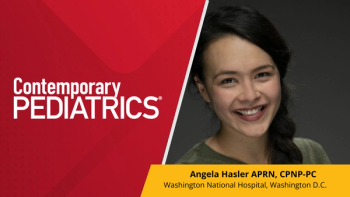
Recognize & Refer: Syncope
This month’s spotlight is Pediatric Cardiology as Contemporary Pediatrics sits down exclusively with pediatric cardiologist Cheyenne Beach, MD, to discuss the one key condition for which she believes community pediatricians should be especially aware-syncope.
This month’s spotlight is Pediatric Cardiology as Contemporary Pediatrics sits down exclusively with pediatric cardiologist Cheyenne Beach, MD, assistant professor of Pediatrics, Pediatric and Adult Congenital Electrophysiology, Section of Pediatric Cardiology, Yale New Haven Children’s Hospital, New Haven, Connecticut, to discuss the one key condition for which she believes community pediatricians should be especially aware-syncope.
Q. Dr. Beach, can you tell us what syncope is and why you think it is something of particular concern for pediatricians?
A. Syncope is essentially passing out. Technically, the definition of syncope is an abrupt, transient, complete loss of consciousness with loss of postural tone. And this is something that is important for us as pediatricians to think about and talk about, first because it’s really common-about 15% of pediatric patients have at least 1 episode of syncope during their pediatric lifetime-and also because syncope can be really anxiety provoking, both for family members and friends who witness events and also for providers who know that syncope can be a symptom of a life-threatening condition.
Q. What do you think are the underlying reasons for the increase in the frequency and severity of syncope specifically in children?
A. I don’t think that there’s necessarily been an increase in episodes of syncope in children, but more and more we’re hearing publicized cases of malignant or dangerous types of syncope, so I think it’s something that has been more anxiety provoking, both for people throughout the community and again also for providers taking care of these patients.
Q. What advice could you offer as far as diagnostic clues that pediatricians should be on the lookout for to properly diagnose syncope in their patients?
A. This is a topic we can cover in a few minutes here but I feel like I could talk about this for a long time. It’s something I see pretty often in our arrhythmia clinic and I’ve become pretty accustomed to trying to use these diagnostic tools. So first, when we see patients with syncope we have to determine if thisis an episode of benign or usually vasovagal syncope or if it’s syncope from another more concerning cause. I’ll note that syncope can have a neurologic cause, something like a seizure, but I won’t focus on that today, instead really differentiating benign or vasovagal syncope versus a cardiac cause of syncope.
Cardiac causes of syncope can fall into 3 large categories and there’s a fair amount of overlap among these categories. The first is a primary arrhythmogenic cause of syncope-things like an inherited channelopathy, long QT syndrome, or something called catecholaminergic polymorphic ventricular tachycardia (CPVT). We also think of patients with Wolff-Parkinson-White (WPW) syndrome. Patients with ventricular tachycardia fall into this category. Second, there’s a structural category for patients who have a structural abnormality in their heart-things like aortic stenosis, an abnormal coronary artery, or hypertrophic cardiomyopathy. And third are patients who have a low cardiac output state, and these tend to be patients whose heart muscles aren’t functioning well due to things like cardiomyopathy from other causes such as a dilated cardiomyopathy or myocarditis. So, in thinking about these cardiac causes that are relatively rare but that we always have to have in the back of our minds, it’s important to ask a thorough detailed history about this event.
I think that there are 6 really important questions to ask related to any of these events.
FIRST is the circumstances of the event. Was there anything different about that day? Where was the patient when this happened? What was the patient doing when this happened?
SECOND, were there any triggers leading up to the event? Was it particularly hot that day? Had the patient been standing for a prolonged period of time? We have all heard of the syncope that occurs during blood draws or during videos in school that make somebody feel queasy, but it’s important to think of triggers like exercise or even emotional exertion.
THIRD is to ask about the presence of a prodrome. This is a very important question. My favorite question to ask these patients is, did you know you were going to pass out when this happened? People describe a prodrome as vision changes. It can be vision turning black, tunnel vision, seeing spots. They can also describe lightheadedness or nausea as part of this prodromal feeling.
FOURTH, what other associated symptoms did you have? Did you have chest pain before this happened? Did you have palpitations? Did you have any trouble breathing?
FIFTH is the duration of the event.
SIXTH is asking about the post-event period. What did you feel like when you came to? Were you confused? And ask the person who was there, of course. Did the patient look confused? Ask about other kinds of symptoms when waking up. Were there palpitations when the patient woke up? And how did the patient then feel for the rest of the day or the following few days around that event?
So, again, the questions around the event are: What were the circumstances of the event? What were the triggers leading up to the event? Was there a prodrome? What were other associated symptoms? How long did the event last? What was the post-event period like?
After asking these questions about the event itself, it’s important to think about other factors that could have played a role-things like, has this ever happened before, or what medications is the patient taking? Specifically, is this patient taking any QT-prolonging medications? Is there family history of sudden death or accidents? Is there a history of any cardiac problems? Does anyone in the family have a pacemaker or a defibrillator? And finally, is there a history of syncope seizures or hearing loss in the family as well? These are all important questions for us to ask surrounding these events.
Q. What are the best treatment options for syncope in children?
A. This is very important to think about, of course, and it’s all based on what the level of suspicion is whether this is a cardiac versus a noncardiac event. If a provider thinks that an event could be cardiac-and I’ll emphasize the red flags that can point us toward the cardiac cause here-the red flags are, did this episode of syncope occur during exercise or emotional exertion? I say emotional exertion on purpose because when somebody’s really worked up, emotional exertion can have the same effect or even more of an effect on a patient than physical exertion can have.
A second red flag is, was there an absence of a prodrome? Third, is there a family history of sudden death, malignant syncope, or other concerning findings? Next is, was the patient taking QT-prolonging meds? Was there an abnormal physical exam finding? For example, if the patient has a murmur that seems to be an outflow murmur, that could be a red flag. Also, if the patient injured himself or herself during the event, that’s a red flag. And then preceding symptoms are palpitations, chest pain, difficulty breathing. Those things could all point us in the direction of a cardiac cause of syncope.
What’s really important is to have these patients evaluated by a cardiologist if this is a concern. It can be helpful to get an electrocardiogram, an EKG, as this can be really helpful to then further delineate a cardiac cause. These visits for potential cardiac causes of syncope are often expedited because we also find them to be very important to figure out. As cardiologists, we are always happy to have conversations with providers to help determine the best plan of action to help make decisions around what to do. Also, these patients with suspicion for a cardiac cause of syncope should be exercise restricted, and I’ve even recently expanded that to be restricted from highly emotional activities such as these video games that seem to be very emotion provoking.
So, it’s these 3 things, really: to get an EKG, if possible; to expedite care to a pediatric cardiologist (and we’re all happy to help make that happen); and third, exercise restriction in that setting. There are some really helpful management strategies and treatments for vasovagal or benign syncope, but that would probably take another session for us to cover completely.
Q. Dr. Beach, is there anything else you’d like to add as a final thought for our community pediatricians?
A. I really would stress that we as pediatric cardiologists, no matter where you are, are always happy to help you figure this out. We recognize that these decisions are not black and white. It’s not always easy, even when you take a thorough history and you do a thorough physical exam, to make the decision about what this is. So, I am happy to take phone calls, happy to see patients, and happy to help with anything else you need.
Newsletter
Access practical, evidence-based guidance to support better care for our youngest patients. Join our email list for the latest clinical updates.








